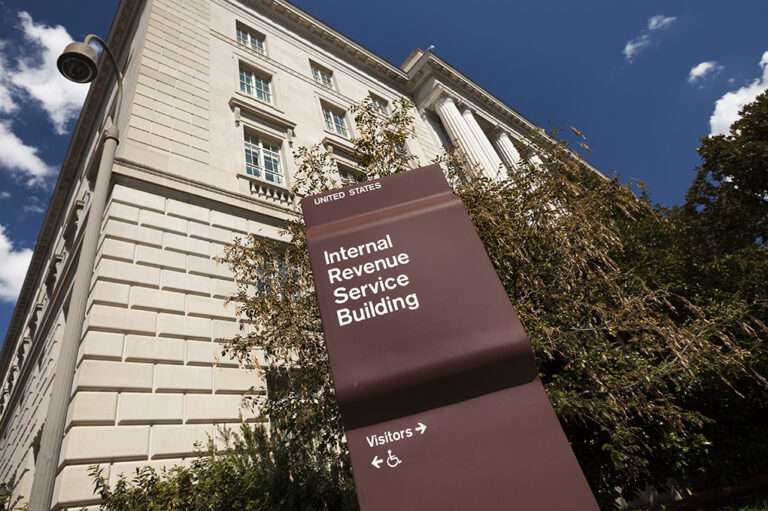Republicans in Congress are considering several new tax cuts that would reduce federal revenues by trillions of dollars over the next decade. Among them is the elimination of income taxes on Social Security benefits. As a new tax exclusion, this would be among the largest federal tax breaks, costing more than $1.2 trillion over 10 years. Further, it would decrease revenue that is dedicated to Social Security and Medicare, bringing both of these key programs closer to depletion and automatic benefit cuts for millions of Americans.
Taxes on Social Security Benefits Are an Important Revenue Source for Social Insurance Programs
Social Security is funded through a mix of sources, including payroll taxes, interest income, and taxes on benefits. Taxes on Social Security benefits began with the Social Security Amendments of 1983, which improved the solvency of the Social Security trust funds. The Amendments implemented major reforms to the program, including creating the tax on benefits and gradually increasing the retirement age. These changes significantly improved the solvency of the Social Security trust funds and increased tax equity by levying taxes on all forms of retirement income more equally. Then, in 1994, the Medicare Hospital Insurance (HI) trust fund began receiving a portion of the revenue from taxes on Social Security benefits, which helped shore up the program’s finances.
Unlike most other income taxes which accrue to the general fund of the Federal government, revenue from taxes on Social Security benefits are dedicated to Social Security’s Old-Age and Survivors Insurance (OASI) trust fund and Disability Insurance trust fund, as well as Medicare’s HI trust fund.
Not all Social Security benefits are currently subject to taxation, and the amount of taxable benefits is determined by a beneficiary’s “provisional income” — i.e., 50 percent of Social Security benefits, plus all other income, minus certain deductions. Generally, up to 85 percent of Social Security benefits are subject to income taxes, but some lower income beneficiaries may pay taxes on a smaller share of their benefits.
The importance of taxes on Social Security benefits for the solvency of Medicare’s HI trust fund and Social Security’s OASI trust fund has grown over recent decades. From 2000 through 2024, revenues from taxes on Social Security benefits have averaged 3.7 percent of revenues for the OASI trust fund and 6.7 percent of revenues dedicated to the HI trust fund. The Social Security Trustees and the Medicare Trustees project that the importance of taxes on benefits will grow even more over the next 30 years. By 2055, taxes on Social Security benefits are projected to account for 8.4 percent of the OASI trust fund’s income and 16.2 percent of the HI trust fund’s income.
No Tax on Social Security Benefits Would Reduce Revenues by More Than $1.2 Trillion
Eliminating taxes on Social Security benefits would significantly reduce federal revenues over the next 10 years. Estimates from budget experts indicate that no tax on Social Security benefits would reduce revenues by $1.2 trillion to $1.5 trillion over 10 years. This revenue loss would be borne fully by the Social Security trust funds and Medicare’s HI trust fund — hastening the depletion dates for these critical social insurance programs.
Eliminating Taxes on Social Security Benefits Would Bring Important Social Insurance Trust Funds Closer to Depletion
The Social Security Trustees currently project that the OASI trust fund will become depleted in 2033, at which point beneficiaries could face an automatic, 21-percent cut in benefits. Similarly, the Medicare Trustees project that the HI trust fund will become depleted in 2036, resulting in an 11 percent shortfall in payments for medical services.
Eliminating taxes on Social Security benefits would make the outlook for both trust funds significantly worse: Social Security’s OASI trust fund would become depleted one year earlier, in 2032. Medicare’s HI trust fund would become depleted six years earlier, in 2030.
Higher Income Taxpayers Would Benefit More from Eliminating Taxes on Social Security Benefits
According to an analysis from the Tax Policy Center, taxpayers in the top 40 percent of the income distribution would receive 72 percent of the tax benefits from eliminating taxes on Social Security benefits. Further, those in the top 40 percent would receive a tax cut more than five-times greater than the tax cut received by the bottom 60 percent.
Conclusion
Eliminating taxes on Social Security benefits would significantly worsen America’s fiscal outlook. Worse yet, this specific fiscal damage would accelerate the deterioration of Social Security’s OASI trust fund and Medicare’s HI trust fund, bringing these programs closer to insolvency and automatic cuts for millions of beneficiaries. Given that these critical programs are already on unsteady financial footing, lawmakers should implement reforms that strengthen them and provide certainty for decades to come. There are many policies that lawmakers could pursue to shore up the future of Social Security and Medicare such as increasing program revenues, raising the retirement age, and slowing the growth of costs and benefits. Given the dangerous fiscal path that we are already on generally and within these key programs, lawmakers should focus on how to improve our fiscal future, not make things worse.
Further Reading
Understanding the New Senior Deduction in the One Big Beautiful Bill Act
The senior deduction adds complexity to the tax code, and fewer than half of seniors will benefit from it.
What Are Estate and Gift Taxes and How Do They Work?
Estate and gift taxes produce relatively lower revenue compared to other sources, but they generate a significant amount of attention, and even controversy.
10 of the Largest Tax Breaks Explained
Tax breaks totaled over $2.0 trillion in 2025. That’s more than the government spends on Social Security, defense, or Medicare and Medicaid.


